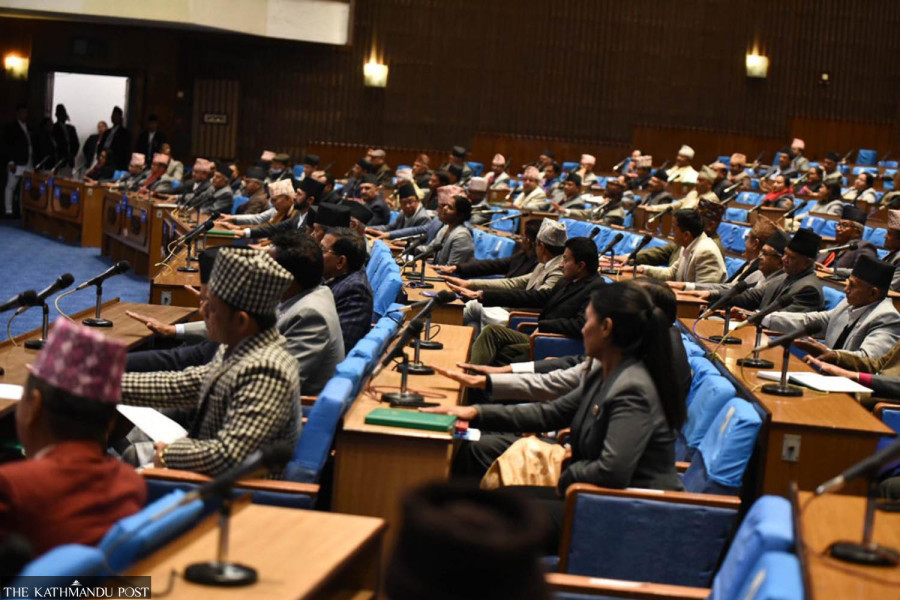Editorial
Power over principle
The prime minister and the Speaker must act more responsibly to maintain the parliament’s sanctity.
A robust national legislature where people’s representatives deliberate on key national issues and pass relevant bills is perhaps the best indicator of a functioning democracy. This is even more the case in a parliamentary democracy where the parliament elects the prime minister, and thus provides a vital check on executive power. But the system works only if members of all three organs of the state accept and internalise the ‘parliamentary supremacy’. This sense of responsibility is most essential in the prime minister, the executive head. In our system, whoever has the majority in the legislature forms the government and so the prime minister, as government head, enjoys enormous potential leverage over the parliament’s functioning. By the same token, there is a big room for abuse of power by getting the legislature to do the executive’s bidding. There have of late been some troubling hints that Prime Minister KP Sharma Oli is on this latter path. For instance, the Federal Civil Service Bill that was to be tabled in parliament after its passage by the relevant parliamentary sub-committee mysteriously disappeared from the House agenda. Speaker Dev Raj Ghimire seems to have removed it at the urging of Oli, chief of the CPN-UML, his former party.
This brings us to the role of the speaker. This is a delicate position that involves removing the mother party’s hat and working in the interest of the sovereign parliament. Not all people are cut out for it. The right person needs to be a mediator between the ruling and opposition parties and someone who can also resist undue pressure from the executive. In his two and half years in the job, Speaker Ghimire has given few indications that he is up to the task. Otherwise, he would not have worked behind the scenes to remove a key bill from the House agenda. We expect a firmer and fairer role for the leader of the House. But then it is also up to the parliamentarians and ministers to do their bit to make the House functional. The parliament is more than half-empty even during vital discussions. Moreover, the ministers are not there to answer the questions raised by various lawmakers, which suggests that they don’t feel a sense of responsibility towards the parliament. An opposition party, meanwhile, has been trying to disrupt House proceedings for weeks on end.
Again, all these are signs that the national legislature is being used more to serve party and personal interests than for national interest. From the outside, people see how their chosen representatives have hollowed out the sanctity of this temple of parliamentary democracy—and they despair. Our lawmakers and members of the executive are apparently yet to internalise even the core tenets of parliamentary democracy—three and a half decades since the 1990 democratic change. The onus to clean up the image of the parliament lies, first and foremost, with the prime minister and the Speaker. If just the two of them start behaving responsibly, other representatives will be forced to correct their errant ways.




 9.7°C Kathmandu
9.7°C Kathmandu














